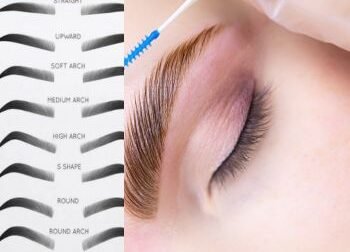Understanding Hyaluronic Acid: Molecular Weight and Its Impact
- August 12, 2024
- Uncategorized
- 7 mins read
Understanding Hyaluronic Acid: Molecular Weight and Its Impact
Hyaluronic acid is a powerhouse ingredient in skincare, renowned for its hydrating and anti-aging benefits. However, to truly understand its efficacy, one must delve into the concept of molecular weight. The molecular weight of hyaluronic acid plays a critical role in determining its effectiveness in skincare formulations. In this blog, we will explore how hyaluronic acid molecular weight influences its performance and benefits for the skin.
What is Hyaluronic Acid?
Hyaluronic acid is a naturally occurring polysaccharide found in connective tissues throughout the body. Its primary function is to retain moisture, providing lubrication and cushioning for joints, eyes, and skin. In skincare, the hyaluronic acid molecular weight plays a crucial role in its ability to attract and hold onto water, making it an essential component in moisturizers, serums, and masks.
The Importance of Molecular Weight
Hyaluronic acid exists in various molecular weights, which significantly affect its performance in skincare products. The molecular weight of hyaluronic acid can range from low to high, each offering different benefits. Understanding the hyaluronic acid molecular weight is crucial for selecting the right product for your skincare needs.
High Molecular Weight Hyaluronic Acid
High molecular weight hyaluronic acid molecules are larger and create a barrier on the skin’s surface. This barrier helps to prevent moisture loss and protects the skin from environmental aggressors. Products containing high molecular weight hyaluronic acid are often used for their immediate plumping and hydrating effects. The hyaluronic acid molecular weight in these products provides a smooth, hydrated appearance, making them ideal for those with dry skin.
Low Molecular Weight Hyaluronic Acid
On the other hand, low molecular weight hyaluronic acid has smaller molecules that can penetrate deeper into the skin. This allows for more profound hydration and skin repair. Low molecular weight hyaluronic acid is beneficial for addressing skin concerns such as fine lines and wrinkles. It helps to support the skin’s elasticity and firmness by delivering moisture to the deeper layers.
How Hyaluronic Acid Molecular Weight Affects Skin Hydration
The effectiveness of hyaluronic acid in skincare largely depends on its molecular weight. Products with a blend of different molecular weights can offer comprehensive benefits. For instance, a serum combining both high and low-molecular-weight hyaluronic acid can hydrate the skin’s surface while also addressing deeper layers. This multi-layered approach enhances overall skin hydration and texture.
Choosing the Right Hyaluronic Acid for Your Skin Type
When selecting a hyaluronic acid product, it’s essential to consider your skin type and specific needs. For those with sensitive or compromised skin, products with a higher molecular weight might be more suitable to avoid potential irritation. Conversely, if you’re looking to address deeper signs of aging or need more intensive hydration, low molecular weight hyaluronic acid could be more effective.

Benefits of Hyaluronic Acid Molecular Weight in Skincare
- Enhanced Hydration: The primary benefit of hyaluronic acid is its ability to hold up to 1000 times its weight in water. This hydrating property is influenced by the molecular weight of the hyaluronic acid. High molecular weight hyaluronic acid hydrates the skin’s surface, while low molecular weight variants penetrate deeper for lasting hydration.
- Plumper Skin: By improving hydration, hyaluronic acid helps to plump the skin, reducing the appearance of fine lines and wrinkles. The hyaluronic acid molecular weight determines how well it can achieve this effect. High molecular weight hyaluronic acid offers immediate plumpness, while low molecular weight hyaluronic acid works over time to improve skin elasticity.
- Improved Skin Barrier: A well-hydrated skin barrier is crucial for maintaining overall skin health. High molecular weight hyaluronic acid helps to reinforce the skin’s barrier, preventing moisture loss and protecting against environmental damage.
- Deeper Skin Repair: Low molecular weight hyaluronic acid penetrates deeper into the skin, supporting repair and regeneration. This can be particularly beneficial for addressing more severe signs of aging or damage.
Incorporating Hyaluronic Acid into Your Skincare Routine
When adding hyaluronic acid to your skincare regimen, it’s helpful to understand the role of molecular weight in its effectiveness. Choose products based on your specific skin needs and concerns. For best results, apply hyaluronic acid on damp skin to lock in moisture and enhance absorption.
- Serums: Hyaluronic acid serums are highly concentrated and offer targeted benefits. Look for serums with a mix of molecular weights for balanced hydration.
- Moisturizers: Incorporate moisturizers containing hyaluronic acid to maintain hydration throughout the day. These often include high molecular weight hyaluronic acid to provide surface-level moisture.
- Masks: Hydrating masks with hyaluronic acid can deliver an intense moisture boost. These products typically use high molecular weight hyaluronic acid to create a protective barrier on the skin.
Conclusion
Understanding the molecular weight of hyaluronic acid is essential for optimizing its benefits in skincare. Whether you are looking for immediate hydration or deeper skin repair, choosing the right hyaluronic acid molecular weight can make a significant difference. By considering your skin type and concerns, you can select products that offer the best results for a radiant, hydrated complexion.
In summary, hyaluronic acid is a versatile and effective ingredient that, when used correctly, can enhance your skincare routine significantly. By understanding the impact of hyaluronic acid molecular weight, you can make informed choices and achieve healthier, more youthful-looking skin.
Hyaluronic acid is a naturally occurring polysaccharide found in connective tissues that helps retain moisture and provides lubrication for joints, eyes, and skin. In skincare, it is used for its hydrating and plumping effects.
The molecular weight of hyaluronic acid determines how deep the ingredient can penetrate the skin and how it performs. High molecular weight hyaluronic acid stays on the skin’s surface to lock in moisture, while low molecular weight hyaluronic acid penetrates deeper for more profound hydration and skin repair.
Hyaluronic acid can be categorized into high molecular weight, low molecular weight, and very low molecular weight. High molecular weight hyaluronic acid creates a barrier on the skin’s surface, while low and very low molecular weight hyaluronic acid penetrates deeper to hydrate and repair from within.
High molecular weight hyaluronic acid forms a protective barrier on the skin’s surface, preventing moisture loss and providing immediate hydration and plumping effects. It is ideal for creating a smooth, hydrated appearance.
Low molecular weight hyaluronic acid can penetrate deeper into the skin layers, offering long-term hydration, supporting skin repair, and improving elasticity. It is effective in addressing fine lines and wrinkles.
Yes, using products with a combination of high and low molecular weight hyaluronic acid can provide comprehensive benefits. This approach allows for surface-level hydration and deeper moisture delivery.
For dry or sensitive skin, products with higher molecular weight hyaluronic acid might be more suitable to avoid irritation and provide immediate hydration. For aging skin or deeper hydration needs, low molecular weight hyaluronic acid can be more effective.
Hyaluronic acid is generally considered safe for all skin types. However, some people may experience mild irritation or sensitivity. It is always best to patch-test a new product before full use.
Hyaluronic acid can be included in your routine through serums, moisturizers, or masks. Apply it on damp skin for optimal hydration, and choose products based on your specific needs and skin concerns.
Hyaluronic acid products can be used daily. Apply them once or twice a day, depending on your skin’s needs and the product instructions. Consistent use can help maintain hydration and improve skin texture.



